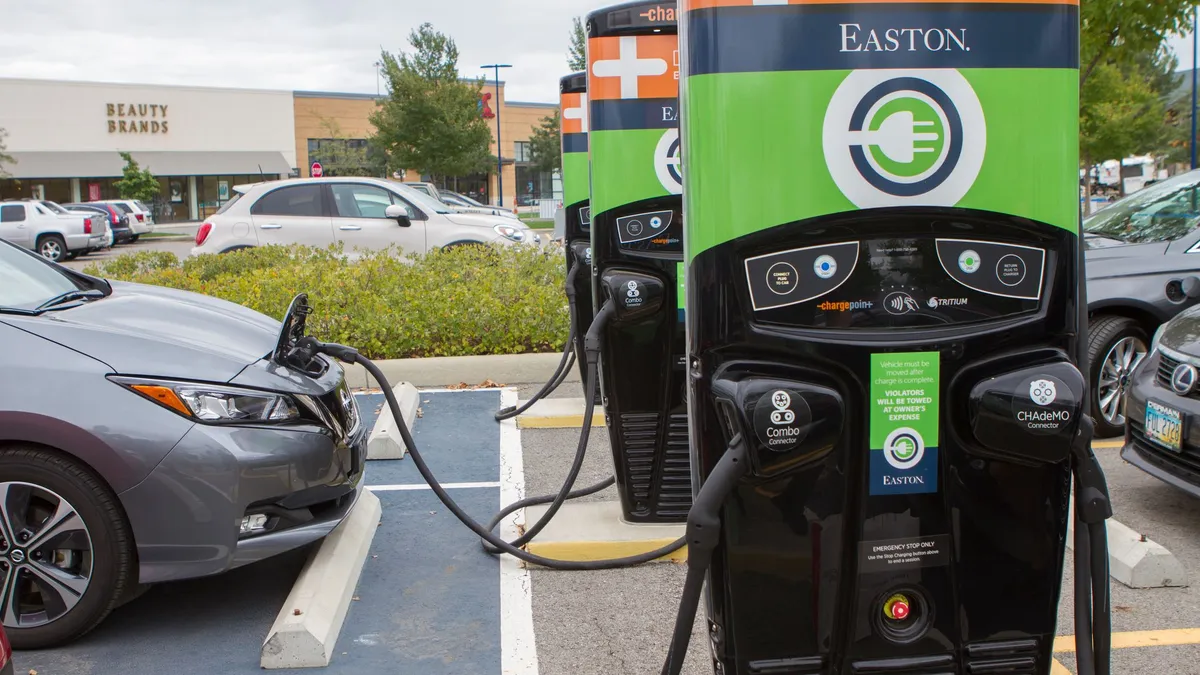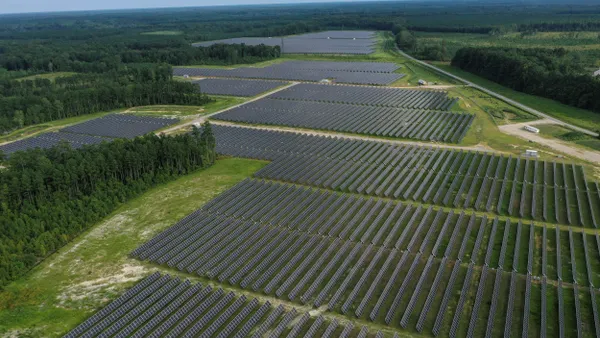Dive Brief:
- Tax language in Democrats' $1.75 trillion budget reconciliation bill could pave the way for more low-income homeowners and renters to build and access renewable energy if it remains in the final bill as written, advocates say.
- The current version of the budget bill includes a direct pay option for the commercial investment tax credit (ITC) and refunds for the residential ITC, rather than having both of them pay out as tax credits. Yesenia Rivera, director of energy equity and inclusion at Solar United Neighbors (SUN), said that change, previously passed by the House Ways and Means Committee, is "key to an equitable transition" by helping low- and moderate-income households install solar at a significantly lower up-front cost.
- Additionally, the bill, along with the infrastructure bill signed by President Joe Biden on Monday, contain several provisions that will make electric vehicles and charging infrastructure more accessible to low-income customers. The $1.2 trillion infrastructure bill puts $7.5 billion towards publicly-available chargers, while the budget bill extends tax credits to lower the cost of the vehicles.
Dive Insight:
Currently, homeowners looking to install solar can claim a 30% ITC on the cost of installation, but it is only payable as a tax credit. That, experts say, means it is only practically available to people with higher tax liability. A 2021 working paper from the Rand Corp. found that for the bottom 50% of U.S. income earners, it would take at least seven years to monetize the tax credit under the current structure. A separate report released in July from the Initiative for Energy Justice, the Institute for Local Self-Reliance (ILSR), and SUN estimated that changes to the Solar ITC could create opportunity for 5.5 million homes to add solar, part of a package of policies that could create 30 million solar homes.
"We have to be so creative to make these projects work, especially because our guiding principle is that they be cash positive from day one," said SUN's Rivera. "We can use every tax incentive and philanthropic opportunities, but households that have to rely on loans end up paying more because they're not accessing that tax refund. Getting access to a reduction in that up-front cost can make the difference for someone to install solar."
John Farrell, director of ILSR's Energy Democracy Initiative and a co-author of the report, said direct pay language corrects a federal policy that has "always been biased towards people who have wealth." Rather than paying out the credit over several years, a direct pay or refundability tweak would ensure that homeowners see the discounts up front. Farrell added that the bill, as written, would also extend direct pay to commercial customers, allowing for more deployment of community solar projects that would reach renters.
"This helps to reinforce the idea that it's not just the utility['s] business to produce energy," Farrell said. "We want to see an equal distribution of the economic benefits of the clean energy transition."
Currently, the budget bill calls for the tax changes to kick in in 2024. Separately, a standalone bill from Sen. Jon Ossoff, D-Ga., would offer similar incentives, but would start a year earlier to accelerate the transition. Ossoff's Clean Energy for All Homes Act was introduced with 13 Democrat and Independent cosponsors.
An Ossoff aide said the sponsors are "working hard to ensure our Clean Energy for All Homes Act is included in [the budget bill] as close as possible."
The House could bring up the Build Back Better package as early as this week, Democratic leadership said, although the bill could see further changes when it reaches the Senate to gain the necessary 50 votes. The bill also contains 10-year extensions of tax credits for renewable generation and a credit for standalone energy storage products, as well as $555 billion in climate change and clean energy investments.
The bill also offers tax credits for electric vehicles of up to $12,500, which would also be available at the point of purchase. That, combined with the investments in charging equipment in the infrastructure bill signed into law this week, could boost EV deployment.
Quincy Lee, CEO of the EV fast charging company Electric Era, applauded the infrastructure bill's "bias towards open access and public charging infrastructure," especially in rural and low-income neighborhoods. While low-income households may not have the capital to install a charger, Lee said that expanding public chargers that are visible and accessible can "change the narrative" that these cars are reserved only for people with garages and off-street parking.
"We can't achieve our climate goals if only millionaires and high income earners can afford electric vehicles and chargers in their homes," Lee said. "The lower you go on the pricing curve to own an EV, the larger percentage of the population we can get involved in the new clean energy ecosystem."














